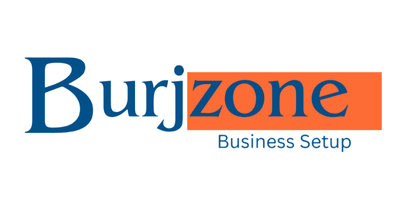Our Blog
Home / Blog
Business Setup Pitfalls in UAE: Regulatory Traps to Avoid in 2025
Starting a business in the UAE offers enormous potential, from tax advantages to global connectivity. But despite its business-friendly environment, there are regulatory complexities that foreign and local entrepreneurs must carefully navigate—especially as UAE corporate and compliance laws evolve in 2025.
If you’re planning to set up in Dubai Mainland, a Free Zone in Sharjah, or expanding to Abu Dhabi, here are key pitfalls to avoid so your business doesn’t stall before it even starts.
1. Choosing the Wrong Legal Structure
A mismatch between your business model and legal structure can lead to tax exposure, compliance headaches, and even licensing rejections.
Common mistake: Registering a Free Zone company when your services target the Dubai Mainland market—or choosing an LLC when a professional license was more appropriate.
Avoid it by: Understanding the nature of your activity and where your customers are, before selecting between Mainland, Free Zone, or Offshore.
2. Not Understanding License Activity Restrictions
Each license in the UAE allows for specific, predefined business activities. Some investors select the wrong activity—or combine unrelated ones under one license, which can lead to fines or rejection.
In 2025, authorities are increasingly strict about this.
Avoid it by: Verifying the approved activity code with the Department of Economic Development (DED) or Free Zone authority and ensuring it aligns with your actual operations.
3. Ignoring Corporate Tax Requirements
With corporate tax now implemented across the UAE, failing to register or assess your tax liability can result in serious penalties—even for startups.
Common mistake: Believing that Free Zone companies are fully exempt. Only “qualifying income” is exempt, and even then, reporting is mandatory.
Avoid it by: Consulting a tax expert and registering with the Federal Tax Authority (FTA), even if you expect zero tax due initially.
4. Using Incomplete or Unattested Documents
For foreign investors, documents like passports, MOAs, or board resolutions must often be legalized and attested by UAE embassies and the Ministry of Foreign Affairs.
Common mistake: Submitting non-attested or improperly translated corporate documents, resulting in rejected applications.
Avoid it by: Legalizing foreign documents in the country of origin and then attesting them in the UAE before use.
5. Choosing the Wrong Office Type or Location
Some licenses require a physical office, and failure to provide a valid lease—like an Ejari in Dubai Mainland—can block license issuance or visa processing.
Common mistake: Relying on virtual addresses for licenses that need physical offices, especially if planning to hire staff.
Avoid it by: Understanding the space requirement per activity and ensuring your office lease matches visa and licensing regulations.
6. Underestimating the Timeline for Bank Account Opening
Company formation may take a week, but corporate bank account approval can take 2–4 weeks or more, especially for high-risk sectors or foreign shareholders.
Avoid it by: Starting the bank onboarding process early, preparing a clear business plan, and choosing the right bank based on your profile.
7. Hiring Without a Proper Labor File
To legally sponsor employees, your company needs:
Establishment Card
Labour file with MOHRE
Valid office lease
Common mistake: Hiring freelancers or staff without official work permits, risking fines and operational suspension.
Avoid it by: Opening your labor file immediately after license issuance and following UAE employment regulations.
8. Failure to Renew Trade License and Visas on Time
UAE businesses must renew their trade license annually, and visa renewals must follow strict timelines.
Common mistake: Overlooking renewal deadlines and accumulating late fees or even blacklisting.
Avoid it by: Setting calendar reminders or appointing a PRO or business consultant to manage renewals.
Final Thoughts
While the UAE remains one of the world’s easiest places to do business, regulatory traps are real—and can be expensive if ignored. With new compliance measures and corporate tax laws in effect in 2025, entrepreneurs must approach UAE business formation with attention to legal structure, licensing, and documentation.
Work with a trusted UAE business advisor to navigate these processes smoothly—especially if you’re entering the market for the first time.
#BusinessSetupUAE #DubaiStartupMistakes #UAECompliance2025 #MainlandVsFreeZone #CorporateTaxUAE
#CompanyFormationDubai #BusinessRegulationsUAE #SharjahBusinessTips #FreeZoneSetupPitfalls #AbuDhabiEntrepreneurs
